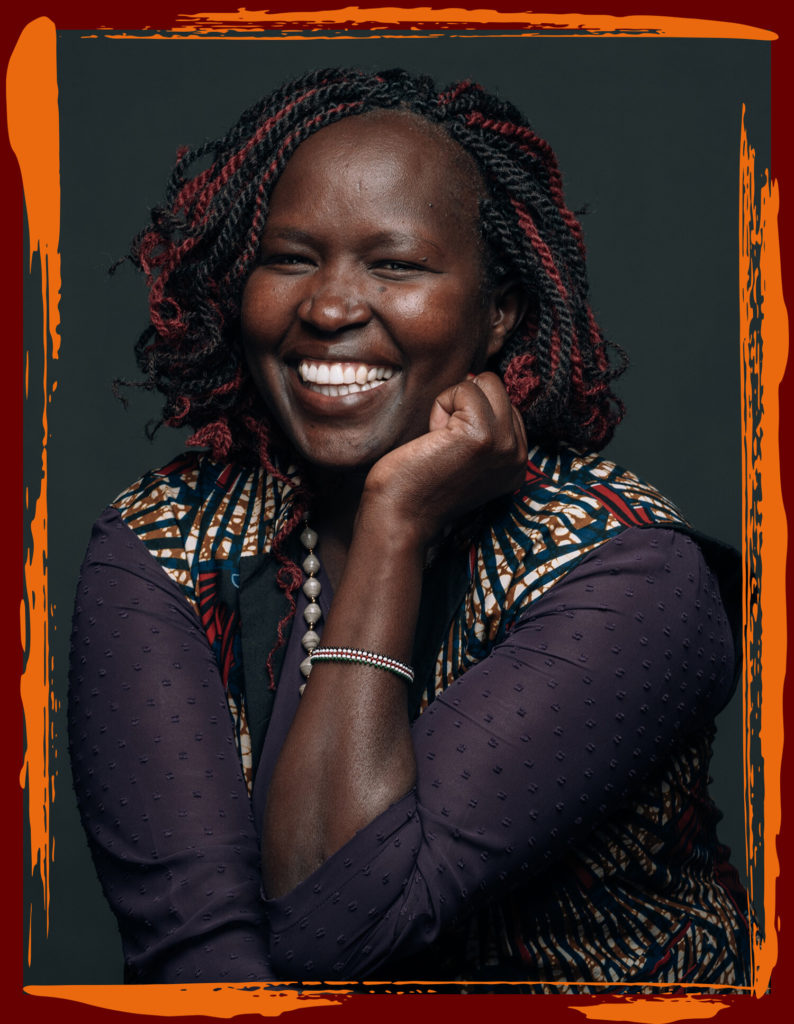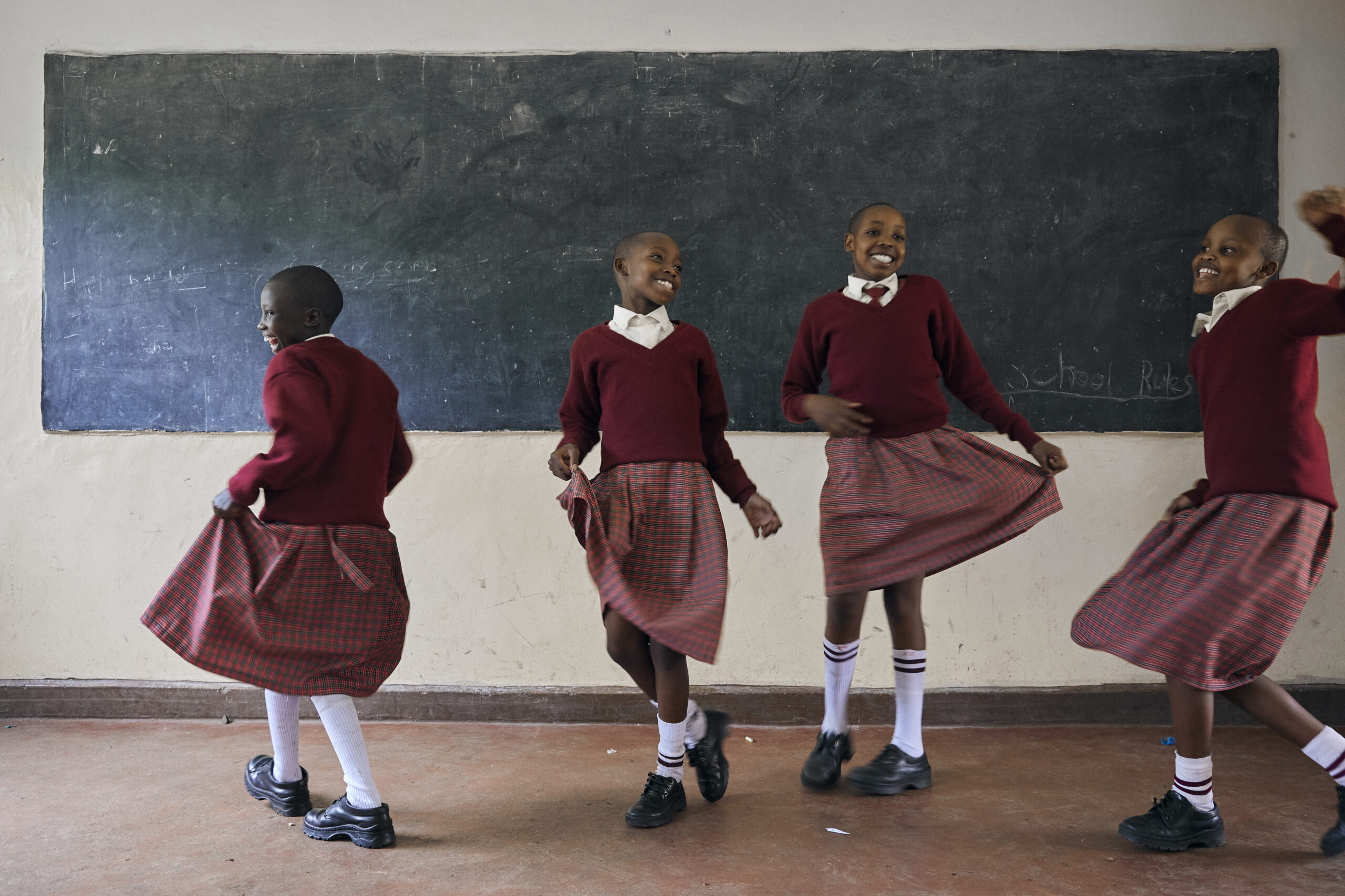YOUR PRIVACY
To enhance your experience with our site, many of our web pages use “cookies” and shopper ID’s. Cookies are text files we place in your computer’s web browser to store your preferences. To find out more, read our updated privacy policy.
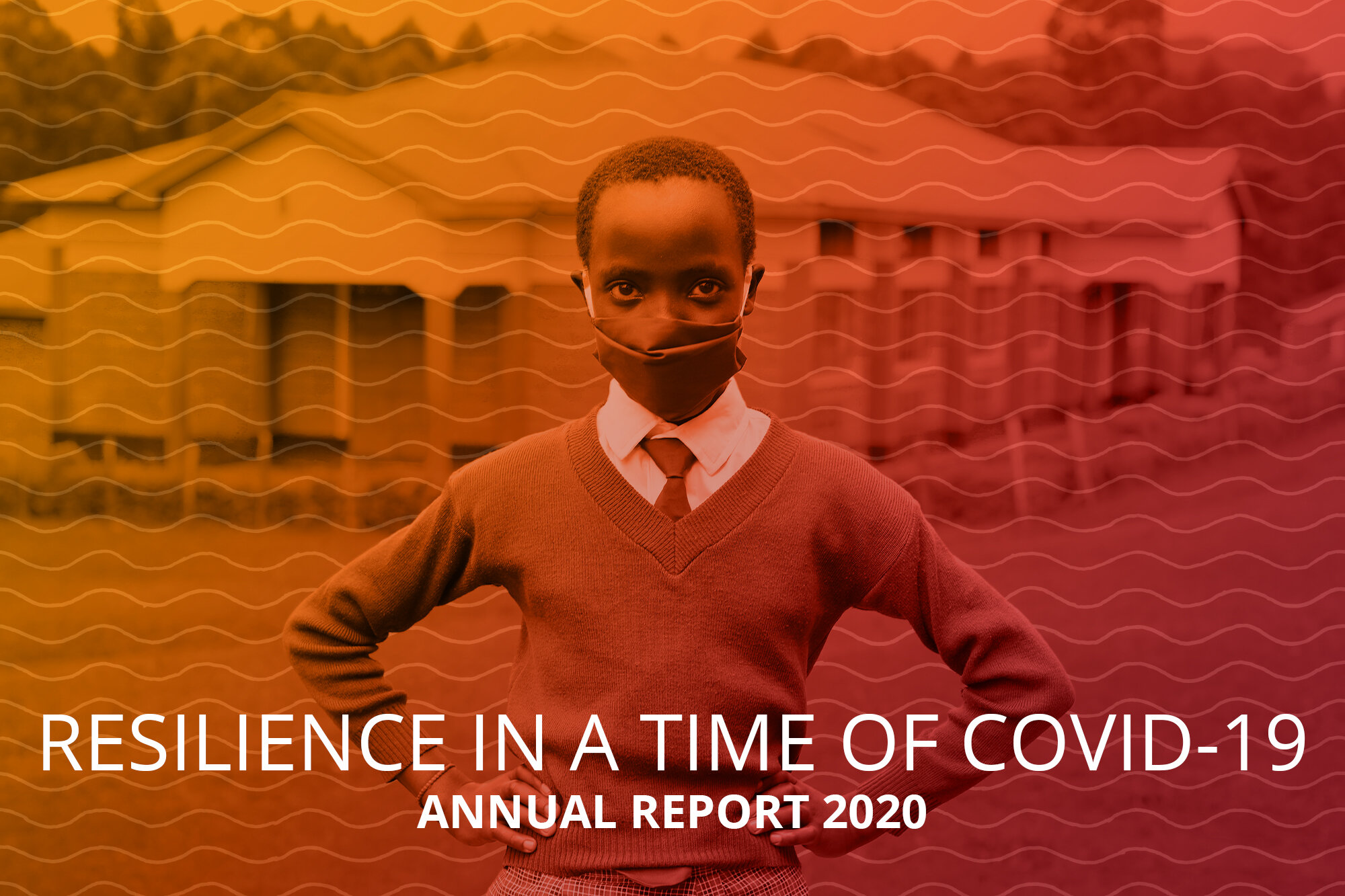

Dear friends,
The COVID-19 pandemic touched everyone, no matter where you were in the world in 2020. In many places, women and girls were disproportionately affected – that was certainly the case in the rural region of Transmara West, Kenya where we operate. When the Kenyan government ordered schools to close, most of the girls at our boarding schools were forced to return to difficult home environments that lacked basic necessities like clean water and food. Across the country, we saw an increase in harmful traditional practices like female genital mutilation (FGM) and child marriage, as well as unintended teenage pregnancy, all of which we had made significant progress toward eradicating over the last decade. It was both heartbreaking and disappointing.
For our girls, going from an environment where they received daily encouragement, support, nourishment, and opportunity, back to homes where those things were simply not available was a major setback. In the face of these immense challenges brought on by the pandemic, we made it our goal to find creative ways to continue to fulfill our commitment to positively impact the lives of our students, their families, and our community. And with the extraordinary support of friends and donors like you, we did just that. We launched new programs specifically to stay connected to our students while they were at home and to provide them with basic necessities.
Parents were once again reminded of the benefits of education and a program that holistically supports their daughters, and by extension, their entire family. Many told us that they had never seen an organization step up in such a proactive and positive way.
We are also seeing unprecedented support from local chiefs, law enforcement, and community and religious leaders. This continued collaboration reinforces and increases our value proposition. We know the road ahead will be arduous and that new challenges will emerge as the pandemic continues, but we are building from what we have learned this past year to make our programs – and our girls – even stronger.
This wouldn’t be possible without our incredible supporters. From those of you who have followed our journey from the beginning, to those who are discovering our work for the first time – your support has allowed Kakenya’s Dream to persevere in a year like no other.
Thank you, and we hope you continue on this journey with us.
With gratitude,
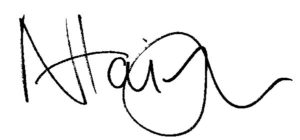
Kakenya Ntaiya, PhD
Founder & President

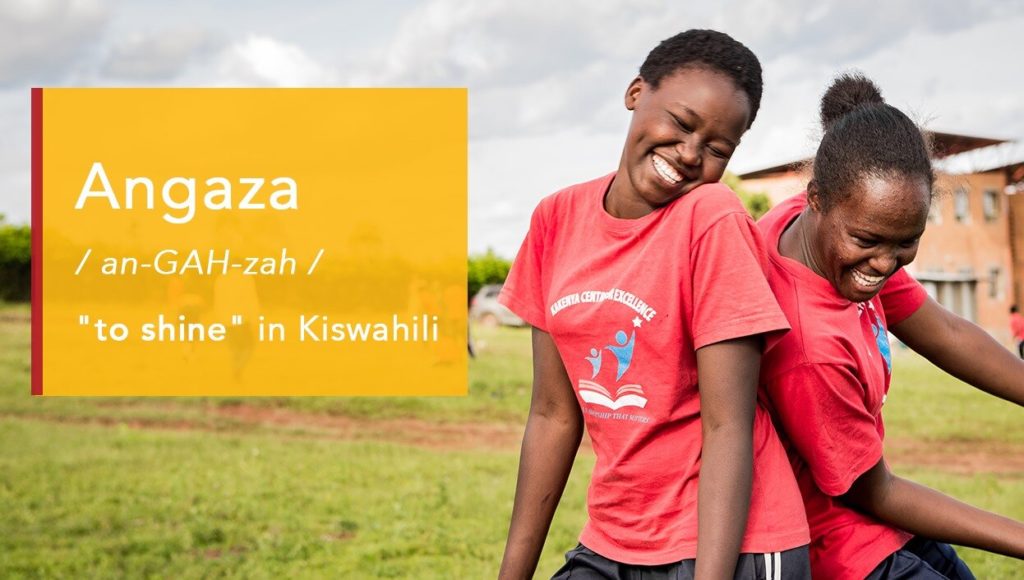
After the Kenyan government ordered schools to close nationwide in March to slow the spread of COVID-19, many of our students expressed that their families were struggling without basic necessities like soap, feminine hygiene products, and staple foods. Our girls also weren’t able to study during the day because they were expected to do all the household chores. By the time they finished in the evening, the sun had gone down and they had no electricity for reading and writing.
Through the Angaza Project, we provided monthly care packages to our students’ households that included the basic necessities they lacked at home, as well as supplies necessary to take part in distance learning, including solar lights and radios.
Meet Ruth
“The Angaza Project came as a big relief to my family and I. We do not have electricity at home. The solar lamp, which is also a radio, enabled me, my nephews, and my nieces to have light to read. I also got study and homework materials that kept me busy throughout the school closure.”
Meet Ruth
“The Angaza Project came as a big relief to my family and I. We do not have electricity at home. The solar lamp, which is also a radio, enabled me, my nephews, and my nieces to have light to read. I also got study and homework materials that kept me busy throughout the school closure.”
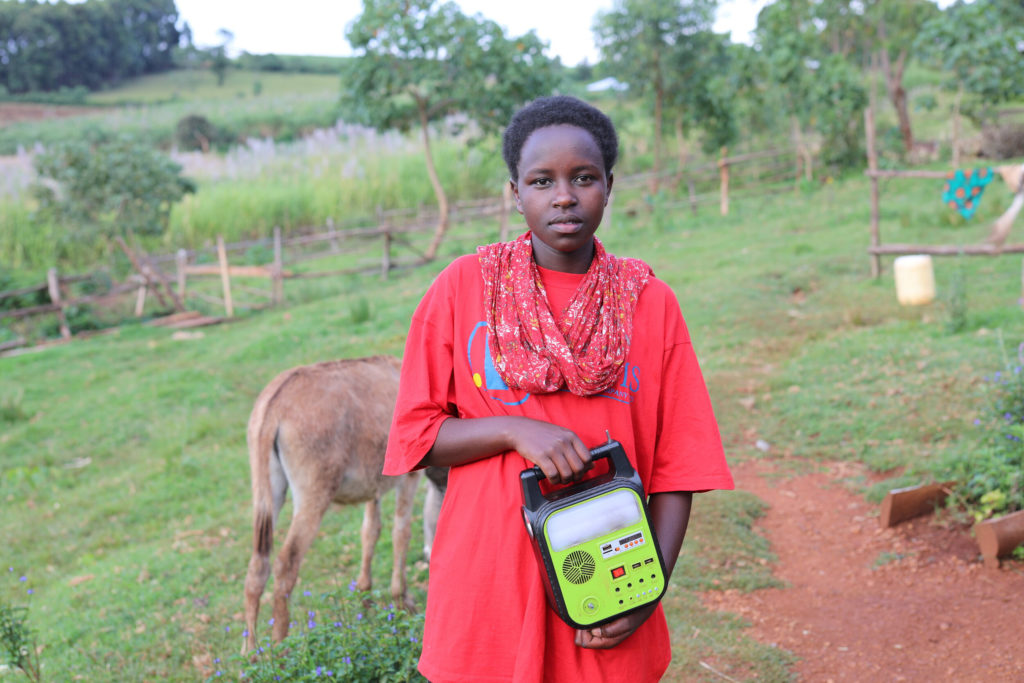
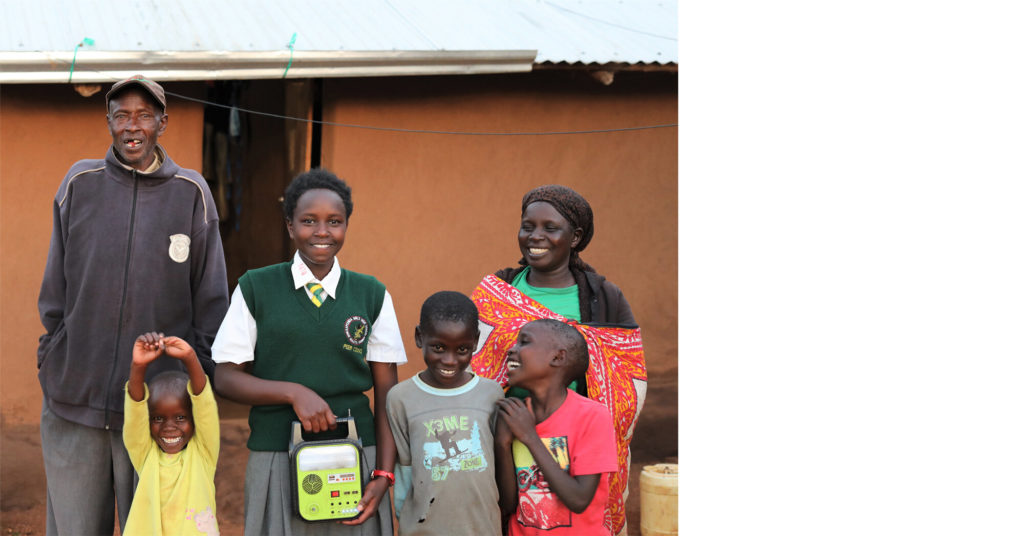
Meet Jackline, Ruth’s mother
“God worked through Kakenya’s Dream. Many families were suffering at the time. Some people lost their jobs, and my son, Duke, was among them. We were at the brink of starvation. My daughter, Ruth, did not have study materials at first and I was afraid that her idleness could push her to teenage pregnancy or early marriage. Where could I get the money for sanitary pads, yet we could not even afford food? We had no savings, and the needs were increasing. The Angaza Project was so timely.”
Meet Jackline, Ruth’s mother
“God worked through Kakenya’s Dream. Many families were suffering at the time. Some people lost their jobs, and my son, Duke, was among them. We were at the brink of starvation. My daughter, Ruth, did not have study materials at first and I was afraid that her idleness could push her to teenage pregnancy or early marriage. Where could I get the money for sanitary pads, yet we could not even afford food? We had no savings, and the needs were increasing. The Angaza Project was so timely.”
By the end of the year, Angaza had become much more than just a name for our emergency response project. It was our mantra guiding us through the unprecedented year – to keep shining the light of hope for our community during its darkest hour.
Because of the unwavering generosity of Kakenya’s Dream’s donors, we were able to support 3,000 children and families in our community with care packages including all of these items and so much more!
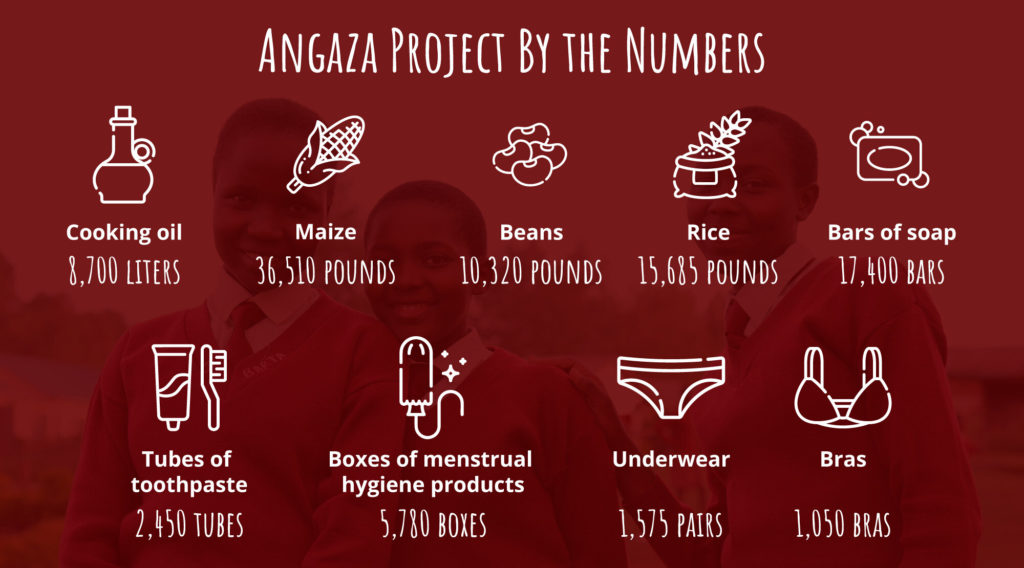

The onset of COVID-19 and the lockdowns that followed led to an alarming surge in unintended teen pregnancies across Kenya this past year. In response, we launched the Linda Dada Campaign (meaning “Protect a Sister” in Swahili) to raise awareness and reduce unplanned teen pregnancies by working with a variety of stakeholders across communities, including government officials, religious leaders, the media, parents, and youth.
The Linda Dada Campaign provides education about sexual and reproductive health, safe sex practices, and healthy interpersonal communication and relationships.
We began the campaign by holding monthly focus group discussions with each stakeholder group to identify the most effective strategies to combat teenage pregnancy and develop strong advocates for the campaign. Since then, we’ve held educational workshops for the community and we are also working with a local radio station to launch a community advocacy program that disseminates essential information on healthy relationships and comprehensive sex education to drive behavior change within the adolescent community.
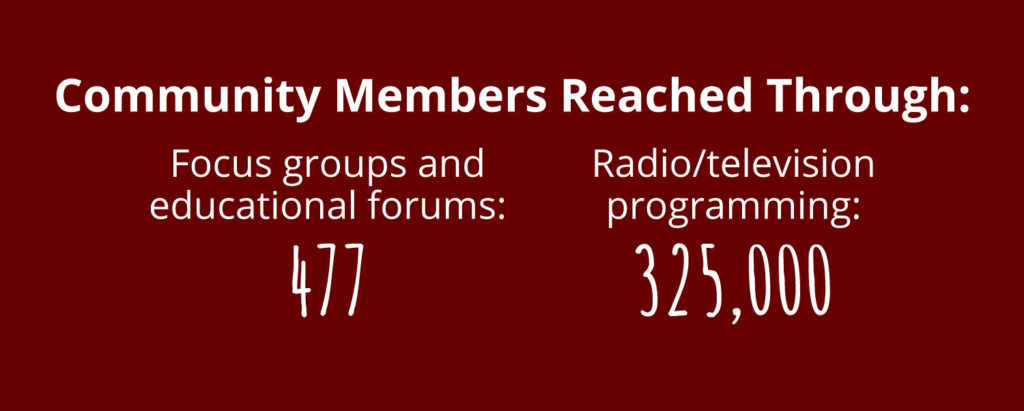
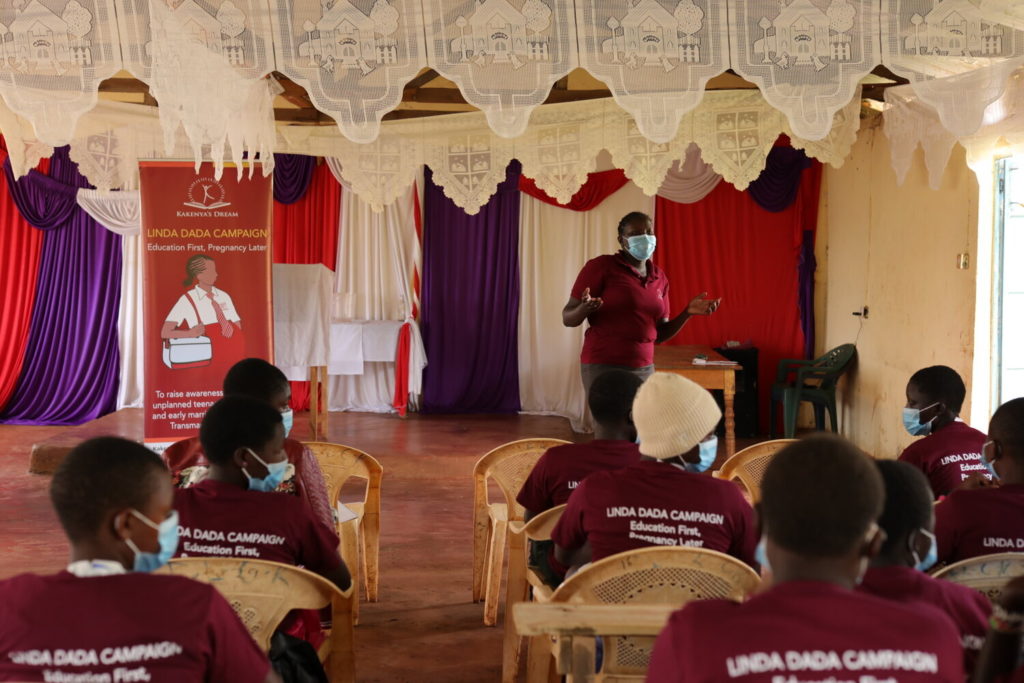
Linda Dada workshop with youth in the village of Mapashi.
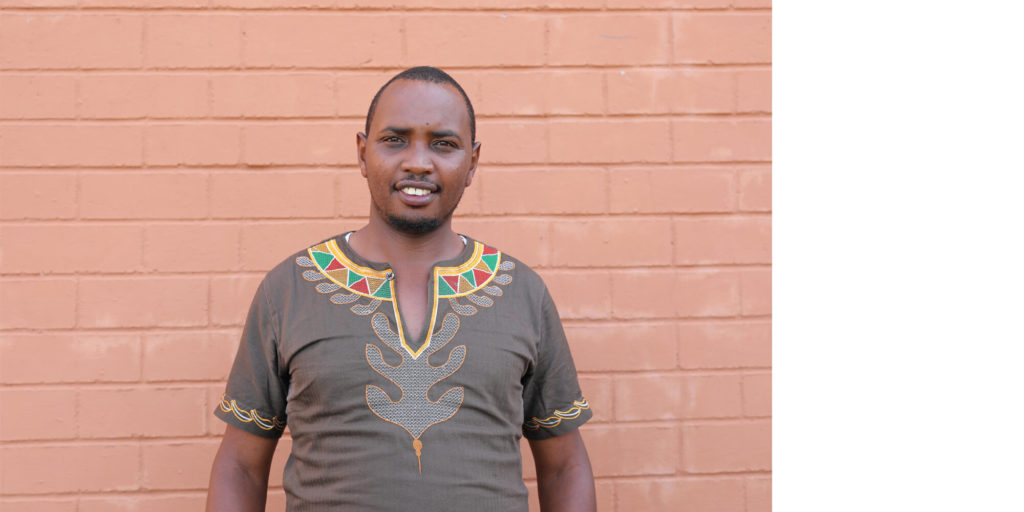
Meet Local Nurse, Peter Sire
“The Linda Dada Campaign will really assist us as a community in reducing teenage pregnancy which has been on the rise. This is the first ever campaign to be done on teenage pregnancy here in Keyian Division. The most unique thing about this campaign is that it will reach out to all the stakeholders - that’s the parents, the local administration, the religious leaders, the boda boda [motorcycle] operators, and the teenagers themselves - providing them all with sexual education which has been lacking in our community.”
Meet Local Nurse, Peter Sire
“The Linda Dada Campaign will really assist us as a community in reducing teenage pregnancy which has been on the rise. This is the first ever campaign to be done on teenage pregnancy here in Keyian Division. The most unique thing about this campaign is that it will reach out to all the stakeholders - that’s the parents, the local administration, the religious leaders, the boda boda [motorcycle] operators, and the teenagers themselves - providing them all with sexual education which has been lacking in our community.”
Meet Local Teacher and Pastor, Simon Nankoris
“I’m excited to be part of the Linda Dada Campaign because of its unique approach. We are meeting directly with the young people and their parents. Girls here are usually married off once they get pregnant, yet they are still young children who are supposed to be in school. We hope that through this campaign, teen pregnancy cases will drop or even stop and that parents will be aware of how they can protect and educate their children. I urge our community to be receptive and ready for change.”
Meet Local Teacher and Pastor, Simon Nankoris
“I’m excited to be part of the Linda Dada Campaign because of its unique approach. We are meeting directly with the young people and their parents. Girls here are usually married off once they get pregnant, yet they are still young children who are supposed to be in school. We hope that through this campaign, teen pregnancy cases will drop or even stop and that parents will be aware of how they can protect and educate their children. I urge our community to be receptive and ready for change.”
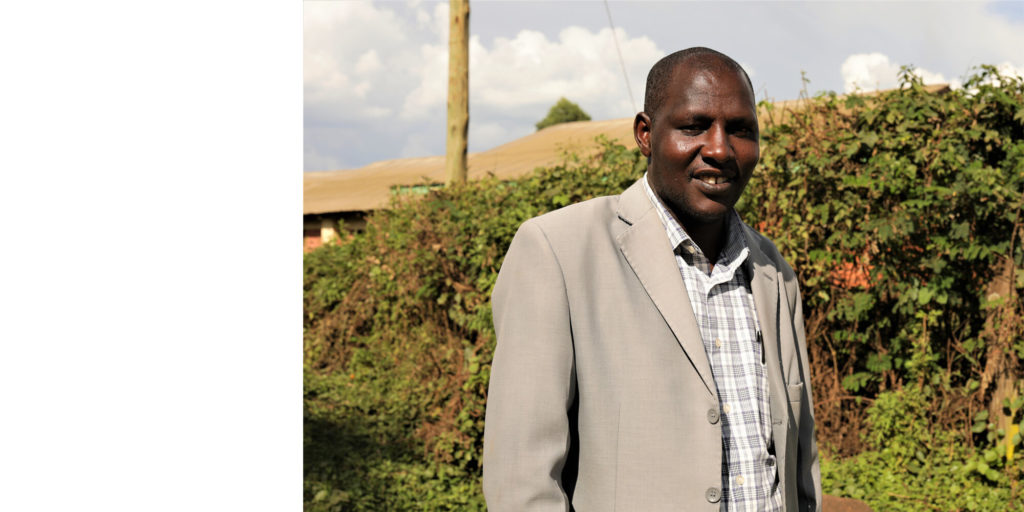
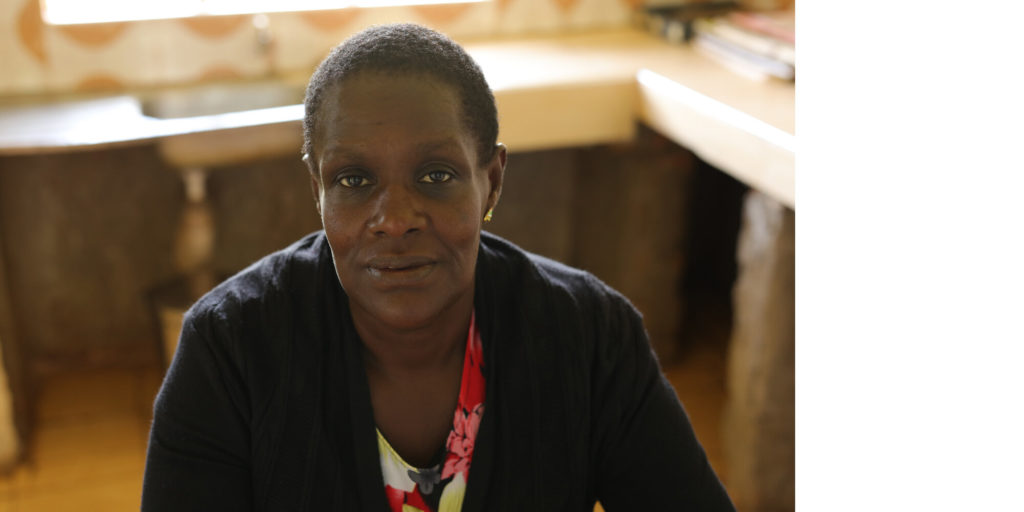
Meet KCE Parent, Jane Kakenya
“Kakenya’s Dream sensitized many parents on gender equality and the importance of educating girls. I am among those who have joined the campaign against FGM, teenage pregnancy and early marriages. I believe every child, whether a boy or a girl, should be given equal opportunities.”
Meet KCE Parent, Jane Kakenya
“Kakenya’s Dream sensitized many parents on gender equality and the importance of educating girls. I am among those who have joined the campaign against FGM, teenage pregnancy and early marriages. I believe every child, whether a boy or a girl, should be given equal opportunities.”

The COVID-19 pandemic has underscored the dire importance of eliminating global health inequities and ensuring healthcare is accessible to all. Currently, in and around rural Transmara West where our schools are located, there is no place for young people to seek resources or services for basic medical needs.
It has long been a part of our dream to incorporate a health center on our KCE II campus, and when the pandemic hit, we recognized our community needed us to speed up our timeline. We set our sights on securing the funding for this project in 2020, and we’re proud to share that in 2021, in partnership with Jack Dorsey’s Start Small Foundation, we will break ground on our community’s first and only youth-friendly health clinic! Serving both our boarding schools and the surrounding community, our health clinic will provide basic healthcare, educational health resources, mental health support and counseling, stigma-free sexual and reproductive care, and an emergency hotline for reporting incidences of violence.
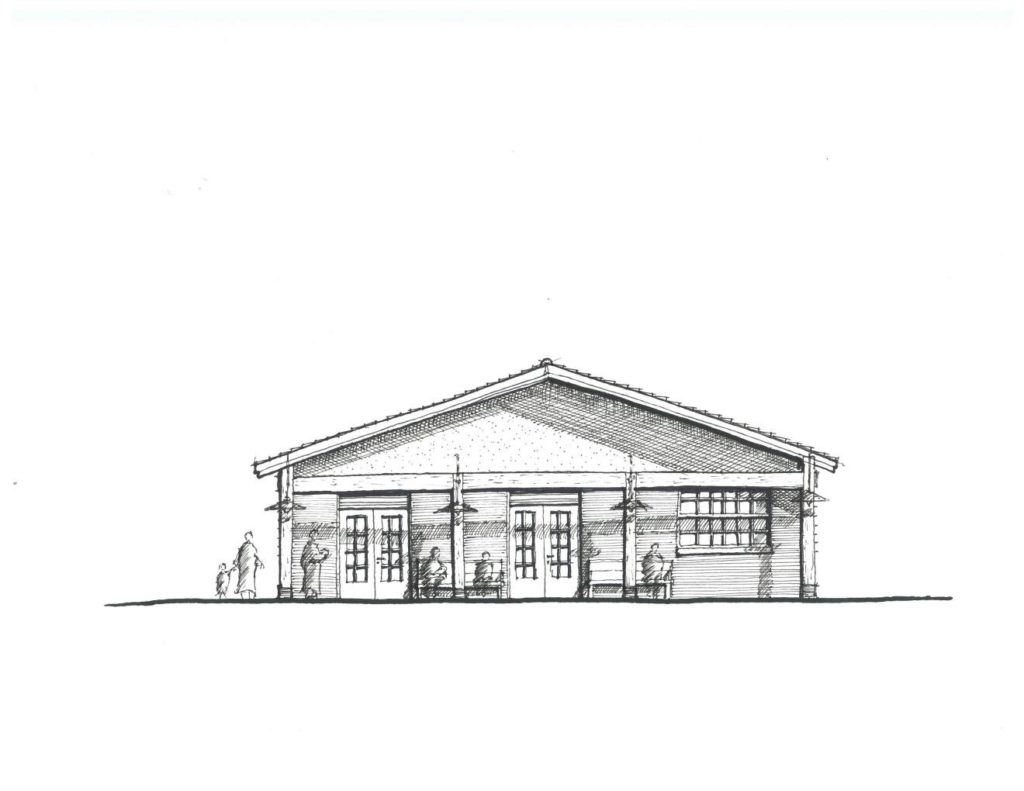
Sketch of future clinic.

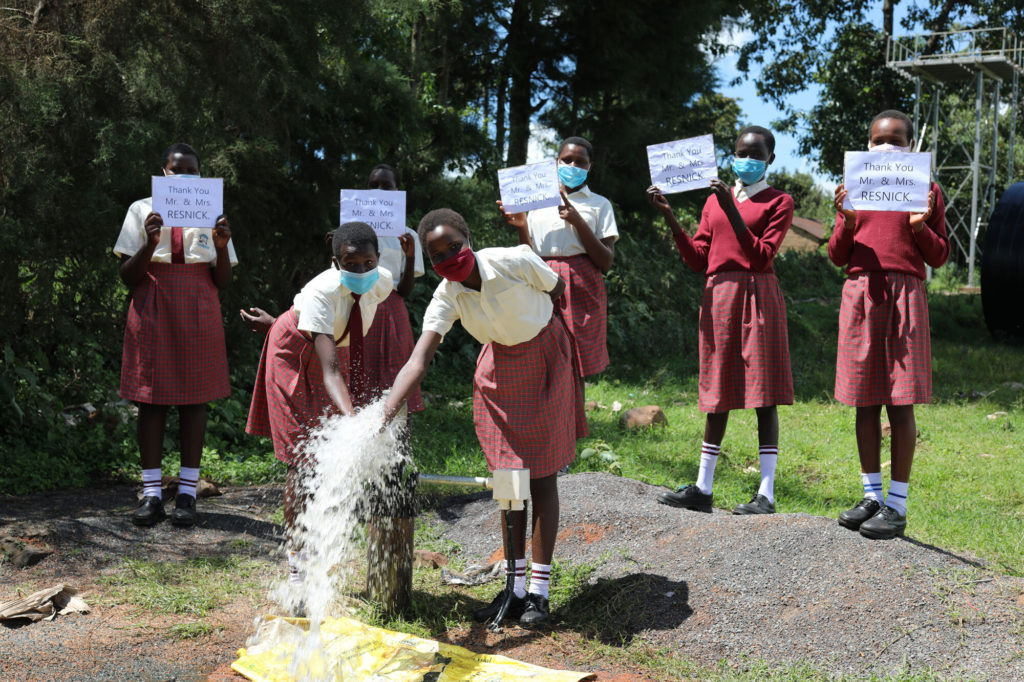
A special thanks to Lynda and Stewart Resnick of The Wonderful Company for funding the wells project!
Worldwide, women and girls spend an estimated 200 million hours each day collecting water. While at home during COVID-19 lockdowns, this burden fell heavily to our girls, taking considerable time away from their studies. Some days, long lines would form and girls could spend hours collecting water. Being away from the protection of home and their families for such an extended period was also incredibly unsafe.
This year, with the support of Lynda and Stewart Resnick of the Wonderful Company, we installed a convenient well at each of our boarding school campuses in an effort to address this problem. Now, the wells not only provide a clean drinking source for our students and neighboring schools, they also ensure thousands of women in our community are able to collect water closer to home, freeing up their time for other important work and opportunities.

While we were busy making sure our girls were supported during the crisis through the Angaza Project and Linda Dada Campaign, our girls were busy thinking up creative ways to leverage their skills and passion to take care of their families, communities, and each other.
Meet Charity
First-year student pursuing a degree in economics and mathematics from Kabarak University in Kenya.
“When I returned home after finishing my high school education in 2019, I realized that there were many pregnant teenage girls in Olekero village where I come from, amongst them a seventh grader. The situation was so discouraging. I could not just sit and watch as the lives of many girls went to waste due to teenage pregnancy, FGM, and early marriages. Being a beneficiary of Kakenya's Dream, I felt I had to live true to its ideals. That’s how I decided to start sharing the information I had received through the Health and Leadership Trainings I attended while schooling at KCE I, on topics such as harmful traditional practices, sexual violence, and sexual and reproductive health. Together with 14 other like-minded youth in the village, we secured permission from the local chief and embarked on a sensitization mission to create awareness amongst the youth in April through December of 2020. We were able to reach a total of 150 boys and girls in our village. During the trainings we led, I realized that there is a big disconnect between parents and their children. Many girls cannot speak directly with their fathers on issues affecting them, except through their mothers. Sometimes, the girls cannot even face their mothers because the parents can be too harsh and inattentive, hence the need to sensitize and involve parents in the fight against FGM, child marriage, and teenage pregnancy.”
Meet Charity
First-year student pursuing a degree in economics and mathematics from Kabarak University in Kenya.
“When I returned home after finishing my high school education in 2019, I realized that there were many pregnant teenage girls in Olekero village where I come from, amongst them a seventh grader. The situation was so discouraging. I could not just sit and watch as the lives of many girls went to waste due to teenage pregnancy, FGM, and early marriages. Being a beneficiary of Kakenya's Dream, I felt I had to live true to its ideals. That’s how I decided to start sharing the information I had received through the Health and Leadership Trainings I attended while schooling at KCE I, on topics such as harmful traditional practices, sexual violence, and sexual and reproductive health. Together with 14 other like-minded youth in the village, we secured permission from the local chief and embarked on a sensitization mission to create awareness amongst the youth in April through December of 2020. We were able to reach a total of 150 boys and girls in our village. During the trainings we led, I realized that there is a big disconnect between parents and their children. Many girls cannot speak directly with their fathers on issues affecting them, except through their mothers. Sometimes, the girls cannot even face their mothers because the parents can be too harsh and inattentive, hence the need to sensitize and involve parents in the fight against FGM, child marriage, and teenage pregnancy.”
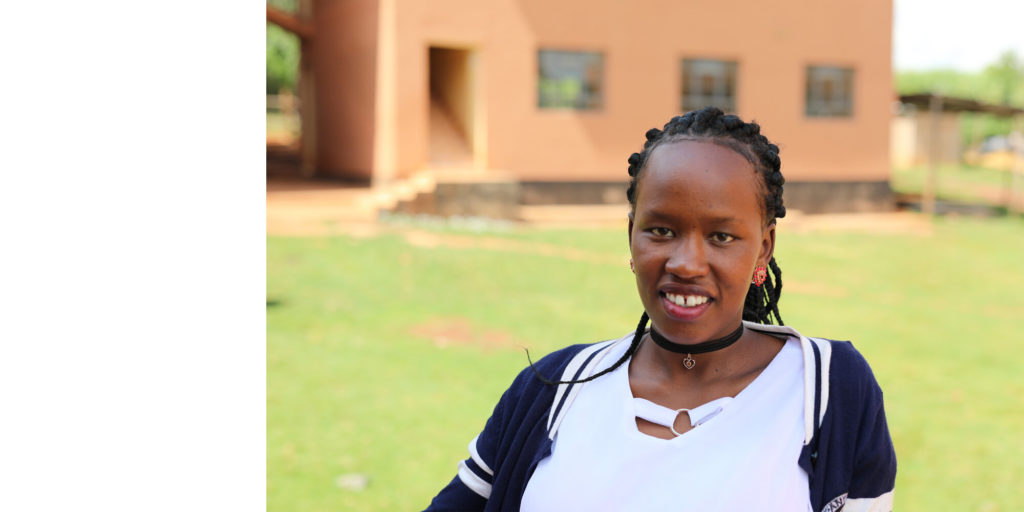
Meet Brenda
Third-year student pursuing a degree in community development at Cooperative University in Kenya.
“I learned traditional Maasai beadwork when I was a student at KCE I, but I had never considered it as a possible income-generating venture. I used to do it for fun. It was during the closure of schools due to the COVID-19 pandemic that I realized I had untapped skills that I could use to train others and generate some income for myself. My friends and I teamed up and started training other girls who were eager to learn the trade of making beaded necklaces, earrings, and bracelets. We also decorated clothes, belts, walking sticks, and watches using beads of different colors. Even after we resumed learning at the university, I have continued with beading. I am doing it as an income generating activity, and many of my clients are my fellow students. I hope to make it a big business in the near future, especially when I complete my undergraduate studies. I have learned that having your personal savings is very important. You must make the best out of yourself when everything is fine in order to overcome an unexpected crisis.”
“I learned traditional Maasai beadwork when I was a student at KCE I, but I had never considered it as a possible income-generating venture. I used to do it for fun. It was during the closure of schools due to the COVID-19 pandemic that I realized I had untapped skills that I could use to train others and generate some income for myself. My friends and I teamed up and started training other girls who were eager to learn the trade of making beaded necklaces, earrings, and bracelets. We also decorated clothes, belts, walking sticks, and watches using beads of different colors. Even after we resumed learning at the university, I have continued with beading. I am doing it as an income generating activity, and many of my clients are my fellow students. I hope to make it a big business in the near future, especially when I complete my undergraduate studies. I have learned that having your personal savings is very important. You must make the best out of yourself when everything is fine in order to overcome an unexpected crisis.”
Meet Brenda
Third-year student pursuing a degree in community development at Cooperative University in Kenya.
“I learned traditional Maasai beadwork when I was a student at KCE I, but I had never considered it as a possible income-generating venture. I used to do it for fun. It was during the closure of schools due to the COVID-19 pandemic that I realized I had untapped skills that I could use to train others and generate some income for myself. My friends and I teamed up and started training other girls who were eager to learn the trade of making beaded necklaces, earrings, and bracelets. We also decorated clothes, belts, walking sticks, and watches using beads of different colors. Even after we resumed learning at the university, I have continued with beading. I am doing it as an income generating activity, and many of my clients are my fellow students. I hope to make it a big business in the near future, especially when I complete my undergraduate studies. I have learned that having your personal savings is very important. You must make the best out of yourself when everything is fine in order to overcome an unexpected crisis.”
“I learned traditional Maasai beadwork when I was a student at KCE I, but I had never considered it as a possible income-generating venture. I used to do it for fun. It was during the closure of schools due to the COVID-19 pandemic that I realized I had untapped skills that I could use to train others and generate some income for myself. My friends and I teamed up and started training other girls who were eager to learn the trade of making beaded necklaces, earrings, and bracelets. We also decorated clothes, belts, walking sticks, and watches using beads of different colors. Even after we resumed learning at the university, I have continued with beading. I am doing it as an income generating activity, and many of my clients are my fellow students. I hope to make it a big business in the near future, especially when I complete my undergraduate studies. I have learned that having your personal savings is very important. You must make the best out of yourself when everything is fine in order to overcome an unexpected crisis.”
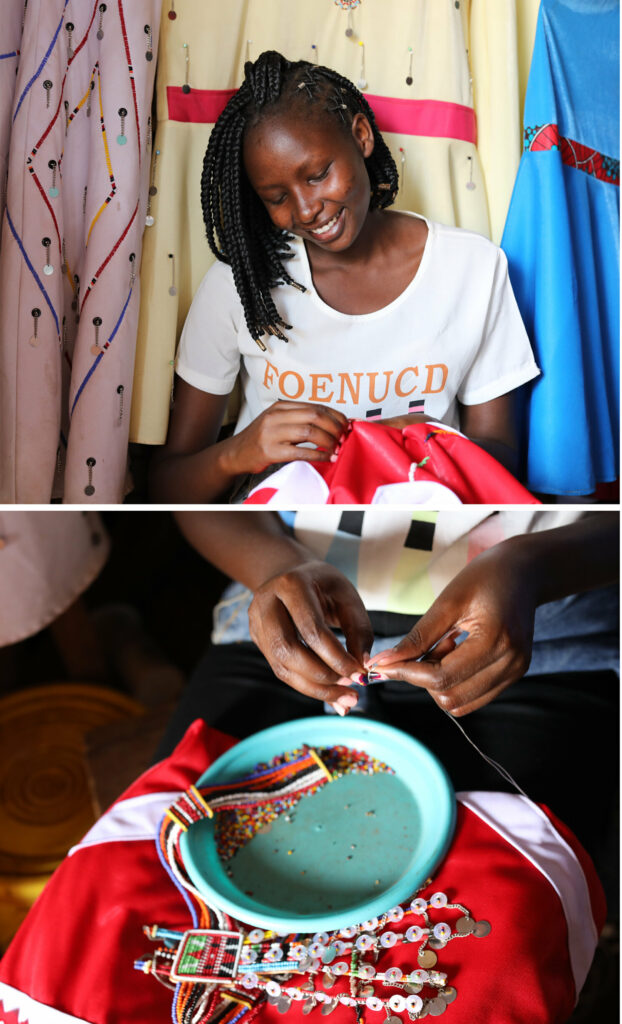

On behalf of all the girls whose lives we’ve changed in 2020, thank you for your generous support!
Major Donor ($25,000+)
- Bruce and Charlene Bainum
- Judy and Kevin Moak
- Lynda and Stewart Resnick
- Rachel Renée Russell
- Roger Sant
- Leila Straus
Gold Kuza Circle ($10,000-$24,999)
- Ronit Berkman
- Linda Howard
- Betty Hudson and Boyd Matson
- Marlene Johnson
- Dottie and Ken Woodcock
Silver Kuza Circle ($5,000-$9,999)
- Ruth and Peter Carter
- Scott Mellon
- Joanie D. Nasher
- Ilene Resnick
- Peggy and Brian Sassi
- Joanne and Jim Steinback
- Anisa Tootla
- Lee and Sam Wood
Kuza Circle ($1,250-$4,999)
- Anonymous (3)
- Patricia Begley
- Nadia Benamara
- Marion Blakey
- Joseph Bohan
- Kathleen Bonk
- Denise Bordonaro
- Stephanie and Harold Bronson
- Suzanne Huston Brown
- Kathy Calvin
- Brian Corcoran
- Sarah Craven
- Deborah Crewe and John Davis
- Susan Crown
- Hilary A. Cusack
- Susan Ann Davis
- Danyelle De Jong
- Karen Desnick
- Lionel Euston
- Jeanna French
- Linda Gottlieb
- Kathryn Graves
- Susan Abrams Greig
- Anne-Marea Griffin and Nathan Holt
- Makiko Harrison
- Alison Head
- Helen M. Johnson
- Wayne Johnson
- Judy Judd-Price
- Marian P. Mancini and Jay C. Mancini
- Morris Matson
- Sara McCracken
- Kathy McDermott-Narezo
- Maurice and Tia McNair
- Jeanie Milbauer
- Steve Nelson and Samantha Adams
- Christian Niemax
- John Ott
- David Oyer
- Nancy Brand Patel
- Suzanne Petroni
- James Radner
- Peter and Elsa Recco
- Pamela Reeves
- Nancy and Miles Rubin
- Sharon Sanders
- Lauren Shepherd
- Helene Shore
- Robert and Elizabeth Soppelsa
- Michele Speir
- Rabbi Shira Stutman and Russell Shaw
- Ness Sufrin
- Yiin Tham
- Elizabeth A. (Betsy) Tyson
- Linda Winslow
Kakenya’s Dream strives to be complete and accurate in recognizing the generous support of our donors. We regret any omissions or errors.

$100,000
- NoVo Foundation
- Segal Family Foundation
- Start Small Foundation
- Women for Change*
$50,000-$99,999
- AJG Foundation
- ELMA Philanthropies∗
- Greater Washington Community Foundation
- The Montei Foundation
- The Sage Foundation
- Social Initiative Educate Girls*
$25,000-$49,999
- Every Good Thing
- The International Foundation
- O’Kane Family Foundation
$10,000-$24,999
- Coca-Cola
- Roger and Katherine Flahive Foundation
- Katonah Education Exchange Program (KEEP)
- Harl & Evelyn Mansur Family Foundation
$2,500-$9,999
- DB Anderson Charitable Foundation
- The David R. and Patricia D. Atkinson Foundation
- Dempsey / Lightfoot Family
- Friedman Family Foundation
- Girls Opportunity Alliance
- InMaat Foundation
- Henry E. Niles Foundation
- Diane L. and Edward A. Powell Fund of the Community Foundation
- Ruparel Memorial Foundation∗
- Serving Richmond and Central Virginia
- Stichting Miss Maasai
- Tate Family Generosity Fund
- UNICEF Eastern and Southern Africa (ESARO) – through the ESARO staff association∗
- Williams Family Foundation
- Zonta Club of Washington Foundation
In-Kind Donations
- UNICEF Kenya, Country Office∗
Partners
- Anti-FGM Board
- Coalition for Adolescent Girls
- Girls First Network
- Girls Not Brides
- HALI Access Network
- Regional Education Learning Initiative (RELI)
- University of Pittsburgh
- University of Technology Sydney
- US End FGM Network
- Western Sydney University
* Revenue that was sent directly to Kenya is not included in the U.S. financials.
Please note: pledge payments made in 2020 against multi-year pledges are recognized above regardless of the year in which the original pledge was made.

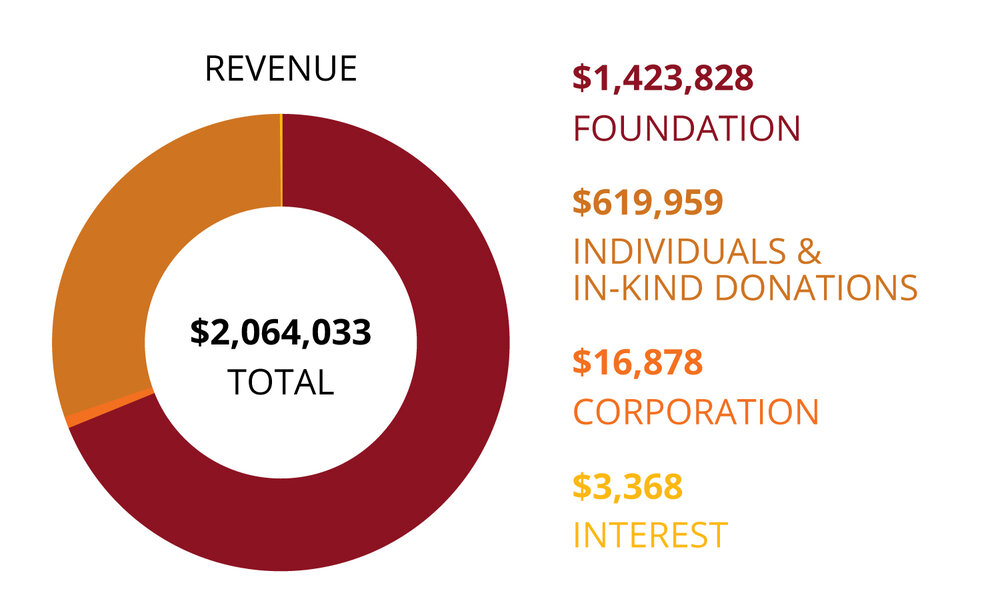
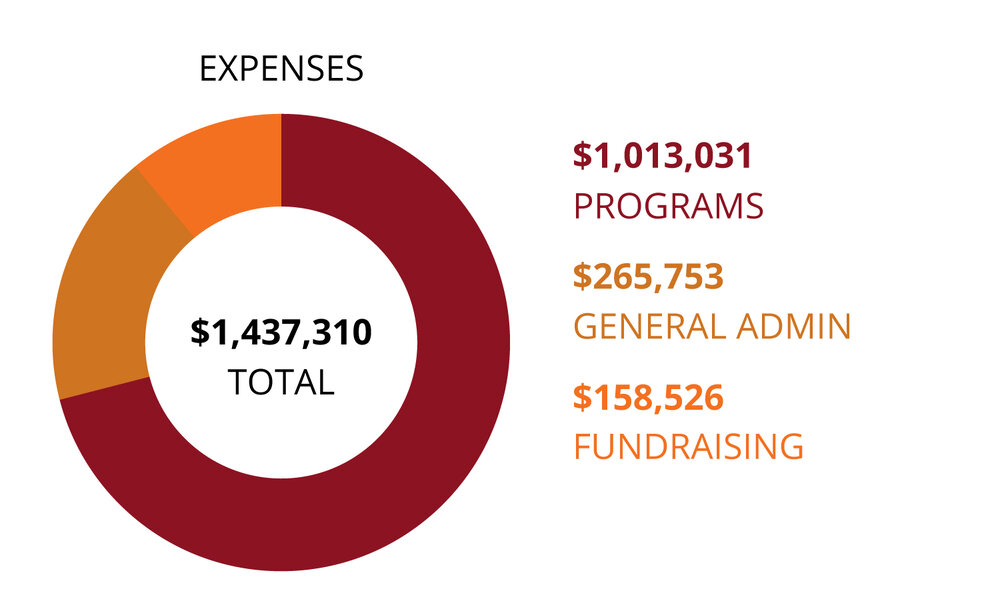
The financials above are audited figures for the U.S. 501(c)3. There was additional revenue and expenses incurred by the Kenyan Trust, a separate legal entity, but those figures have not yet been audited due to COVID-19.


